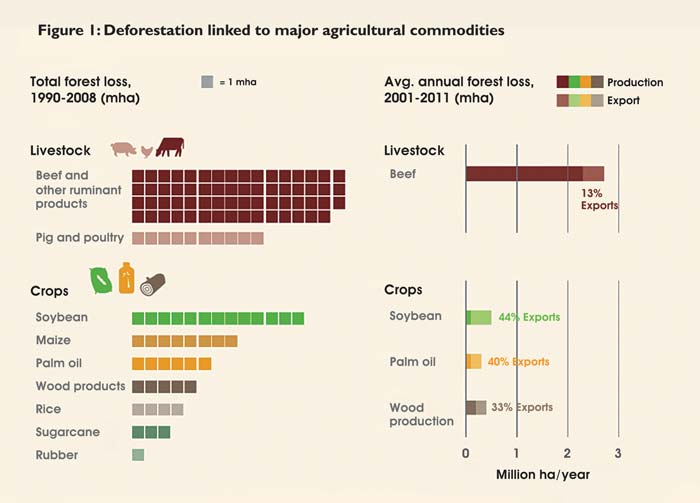



Have we got our priorities backwards?
February, 2017 in Issue 1 - 2017, Comment
In working to change the world, there’s always a need to keep asking ourselves whether we’re focusing on what’s most important. This certainly applies to the effort to end tropical deforestation, which is why I and my UCS colleagues have put a lot of emphasis on figuring out what causes – and in particular, which businesses are the main drivers of – deforestation.
Unfortunately, a recent study indicates that the global corporations that have committed to ending the deforestation they cause, have got their priorities backwards. And it suggests that the NGO community – and that definitely includes me – may have had our priorities wrong too.
The study, by Climate Focus and many collaborators, is part of an assessment of the impact of the New York Declaration on Forests two years ago. That Declaration, launched at the September 2014 Climate Summit that also featured a march of 400,000 people through the streets of New York, highlighted commitments by hundreds of companies, governments, NGOs, Indigenous Peoples’ groups and others to work towards a rapid end to deforestation.

The September 2014 Climate March through the streets of New York, with yours truly on the left, helping to carry the UCS banner. The New York Declaration on Forests was launch a few days later.
The Climate Focus report looked in particular at the Declaration’s ‘Goal 2’: ‘Support and help meet the private-sector goal of eliminating deforestation from the production of agricultural commodities such as palm oil, soybean, paper and beef products by no later than 2020, recognising that many companies have even more ambitious targets.’
In evaluating progress toward achieving Goal 2 by 2020, Climate Focus looked at the most recent data showing the main drivers of deforestation. Figure 1 gives these results, from two different data analyses (on the left, from Henders et al, 2015; on the right, from the European Commission 2013).

The main commodities driving deforestation, from the analysis of Climate Focus based on two different data sources.
Source: Climate Focus 2016. http://climatefocus.com/publications/progress-new-york-declaration-forests-goal-2-assessment-report-update-goals-1-10
The data is pretty clear: by far the biggest driver of deforestation is beef. Soybean is second, but far behind in terms of importance. And palm oil and wood products are even smaller drivers, causing only about a tenth as much deforestation as beef.